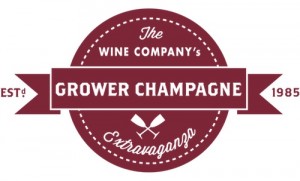Grower Champagne: Families, Farming, and the Future

We are getting incredibly excited about the upcoming Grower Champagne Extravaganza, coming on January 25th, 2014. To help spread the word, here is a personal invite from Larry Colbeck, founder and owner of The Wine Company.
This is quickly shaping up to be the greatest Champagne tasting ever held in the state of Minnesota. Our love of Grower Champagne runs deep around our office, for it represents what we believe in: families, farming, and the future.
Families
To meet a Champagne Grower-Producer family is to meet a group of people with guts. Why? Because in Champagne, growers who sell their grapes to the big houses are rarely paid based on quality, but rather by quantity. The ‘rating’ of a vineyard will provide a guaranteed income and the big houses will buy tons of grapes with a phone call, sight unseen. In other words, a Grower-Producer family is surrounded by wealthy and successful neighbors that don’t have to go through the hard work, tension, strife, and all around randomness of making your own wine.
We like working with the Grower-Producer families because they, like us, work in a world of larger forces that sometimes try to dominate market segments. They have chosen, as we have at The Wine Company, to take a harder road but one that is ultimately more satisfying.
Farming
When we travel to wine regions and wander a vineyard with a producer like Jim Pedroncelli, or Pierre Gaillard, or John Williams, you get an intimate sense of their land stewardship. They know it’s the foundation of everything they do, for they get to taste the labor in the finished product.
Unfortunately, in Champagne, there is a simple but unavoidable fact: most land owners do not make wine. They are disconnected from the process of the coaxing and parenting that leads ultimately to something wonderful to drink several years down the road.
Which is why we respect the Grower-Producers so much. A family like Jean Lallement’s, with only 10 acres of land, knows every one of their vines intimately and what it brings to the bottle (a bottle with their own name on it). A family like Nicolas Chiquet’s, who were one of the very first families to bottle their own Champagne (starting in the early 20th century) has history and pedigree attached to a place. This is important anywhere else in the wine world, and so it should also be in Champagne.
The Future
Grower-Producers will never dominate the Champagne market — the muscle and money of the grand marques is simply too powerful. However, while Prosecco sales have increased at an incredible rate the last ten years (thanks to the recession, people moved toward less expensive bubbly), Champagne sales as an industry have overall been flat.
But not for the Grower-Producers. What started off as a 1% market share twelve years ago, is now at 3%. This doesn’t sit well with the big houses, as you can imagine. We believe going forward there is incredible potential for these single-site and Grower-Producer Champagnes to make further inroads in the category.
A final thought, brought to you by Wine Spectator
Even before it was fashionable we were championing the little guy in Champagne. It just made sense. But now even the big companies are trying to join in the movement. In the December 15th 2013 issue of Wine Spectator, Alison Napjus writes:
These changing attitudes are connected to a paradigm shift among producers in the region. Historically, Champagne houses promoted their bottlings as a luxury product; the spotlight was on a house’s name, image, and prestige labels. Today, many producers are focusing on Champagne as a wine.
Hmmmm … Champagne as a wine … what a concept!
It gets better …
… “We realize we need to let the wine shine,” says Jean-Baptiste Lecaillon, chef du cave of Louis Roederer, which produces Cristal, long seen as one of the ultimate “label” brands. “You come back to the real story of Champagne — the terroir, the vineyards.”
Maybe some have had to circle back to the ‘real story’ of Champagne. Not us. We’ve been here all along. And we hope you can raise a glass to the ‘real story’ of Champagne with us on January 25, 2014.







